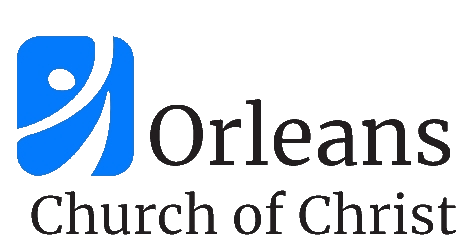Autonomy And the Lord’s Church
Editor’s Note: This is the first in a series of articles the author wishes to present about AUTONOMY and The Lord’s Church. Inasmuch as this subject has become a topic of conversation among brethren, it seems appropriate to address this matter from the Scriptures, and not from personal opinion. If within these articles you find the presented reasoning to be in opposition to God’s truth, please advise and correct me!
Michael J. Davis
hhhh
The word AUTONOMY is not a “bible” word. It never appears in Scripture. Yet, the importance of this word and the practice of autonomy has become a topic of discussion among brethren and unfortunately has caused some to fall away from the faith, endangering their souls for eternity. It is NOT my intent to form an “issue” where there is no issue, but rather to sound a warning to all regarding the work of the Lord’s church within the local separate congregations of the Lord’s church.
Webster defines AUTONOMY as follows: The right of self-government; independence. When used in conjunction with the Lord’s church, we examine passages like Acts 20:28 where Paul said to the elders of Ephesus, “Take heed therefore unto yourselves, and to all the flock, over the which the Holy Ghost hath made you overseers, to feed the church of God, which He hath purchased with His own blood.” The phrase “over the which the Holy Ghost hath made you overseers” should suffice for us in understanding each local church of Christ is autonomous: i.e., self-governing!
Let’s examine this passage much closer. First, Ephesus has elders, and the members constituted the “flock” over which these elders were overseers. They did NOT rule over the church at Laodicea, Jerusalem, Colossae, Thessalonica or anywhere else an assembling of God’s children met. The oversight of these elders was limited to Ephesus. Yet notice as well, that these elders did not OWN the Lord’s church. The Lord Jesus Christ had purchased the church with His own blood. From this passage, we note the distinction between the smaller group (Ephesus) and the much larger group (sometimes referred to by brethren as the “universal” church) called the church of God (God the SON, Jesus, being the Purchaser, rather than God the Father or God the Spirit.)
Elders were to exist in every city (Titus 1:5) meaning every congregation (Acts 14:23). The authority of these men, who met the qualifications listed in 1 Timothy 3: 1 – 7 and Titus 1: 5 -9, was limited to the local church over which they had been ordained as elders. There is no reference to “counsels, synods, conventions, board of elders, or any other methodology of hierarchy with these men. Christ remains head of the body, the church (Ephesians 1: 22 – 23; Colossians 1:18) and retains all authority in heaven and earth (Matthew 28:19). Therefore, the “rule” elders have over these local works is limited to that local work. Each local work is AUTONOMOUS, understanding they function with Christ as King and therefore govern themselves according to His word.
It has been said, “Elders are enforcers of Christ’s law within the local church of Christ.” That seems a fair way of describing their “rule” over the flock. Elders cannot change the law of Christ (Revelation 22: 18 – 19), but must by word and deed, serve it well (Hebrews 13:7; 17) in word and deed (Colossians 3:17).
While elders may see misconduct in the souls of those of other churches of Christ because each local work is AUTONOMOUS, the elders of one place have no authority over another place. They might speak to the erring soul (if they know them and have the opportunity – 1 John 5:16) but they have no rule to discipline them, as their “rule” has no authority over the autonomy of another local church of Christ.
As we bring this first article to a close, we remind the reader of the following facts:
- Christ is the Head of the church. Therefore, no man, regardless of his desires, is at liberty to change the law of Christ Jesus! If the doctrine (i.e., teaching) in any local church of Christ cannot be proven with book, chapter, and verse from the inspired word of God, it must be rejected. We are not judged by man’s word but by the Lord’s word (John 12:48).
- Elders have authority only within the church of Christ where they have been ordained (appointed) to rule as elders. That local flock is deemed large enough for these two or more qualified men to watch and keep within that “fold.” Likewise, they must enforce the law of Christ. They are not at liberty to comprise or compose their own “rules and regulations as pertains to the growth of these brethren in the grace and knowledge of Jesus Christ (2 Peter 3:18).
NEXT WEEK: Does AUTONOMY allow any choices if the law of Christ does not specify?
